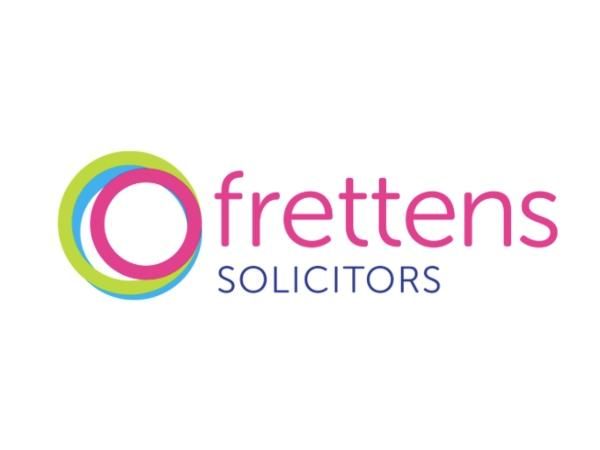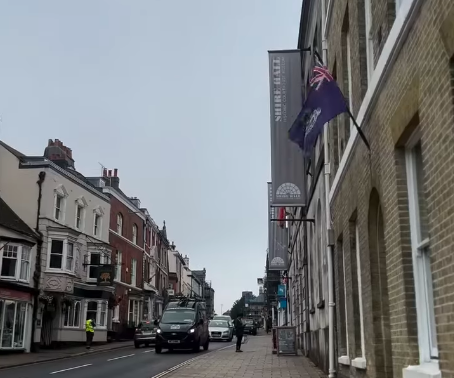In case you missed it see what’s in this section
Let's Talk
Your Total Guide To business

Do Sellers Have To Disclose Japanese Knotweed
Anthony Eaton is an experienced solicitor in our dispute resolution team. He handles an increasing number of property misrepresentation claims.
A common example of this is where a new owner discovers Japanese knotweed at the property and it was not disclosed by the seller. In this article, he explains what a property owner can do if they believe they have been misled, and how they can be compensated.
What is Japanese knotweed?
Japanese Knotweed is an invasive plant species found in the UK and is known for its rapid growth.
Knotweed is estimated to affect around 5% of UK homes. It is particularly difficult to manage and spread through systems of underground stems called rhizomes.
Can Japanese Knotweed damage my house?
Japanese Knotweed can cause significant issues if it is allowed to grow unchecked and near your home. It normally damages your home by finding and worsening weaknesses in, walls, concrete or pipework.
Is it illegal to sell a house with Japanese knotweed?
It is not illegal to sell a house with Japanese Knotweed. However, you do have a legal obligation to disclose its presence to potential buyers. This disclosure is typically done through the Property Information Form (TA6), which asks specifically whether the property is affected by Japanese Knotweed"
Failing to disclose the knotweed’s presence can be classed as Property Misrepresentation, ,which may result in legal disputes and significant financial consequences.
You can read our comprehensive article on Property Misrepresentation here.
Do you have to declare Japanese knotweed when selling a house?
Yes, it is necessary to disclose its presence as above when selling a property affected by Japanese knotweed.
If you suspect there may be Japanese Knotweed on your property but are not sure, you may wish to instruct a specialist surveyor to check.
How much does Japanese knotweed devalue a house?
Selling a house with Japanese knotweed can reduce a property’s value by between 5-15%.
How much it is devalued will depend on the severity of the infestation and its proximity to the property and surrounding buildings.
What is the seven metre rule for Japanese knotweed?
Given that Japanese knotweed can extend up to seven meters underground, its presence within that radius of your property may complicate the mortgage approval process, owing to concerns about potential structural damage.
You can find out more about this on the Royal Institute of Chartered Surveyors here.
What are my rights if Japanese knotweed is disclosed after buying a house?
If you are informed of the presence of Japanese knotweed after the purchase of the property, this could imply an admission that the seller has misled you and possibly misrepresented the property.
You may have grounds to pursue a misrepresentation claim based on non-disclosure, which could potentially entitle you to compensation for remediation costs or a reduction in the property's value.
Can I sue the seller for not disclosing Japanese knotweed?
If the seller of a property is aware of the presence of Japanese Knotweed and fails to disclose this information to the buyer, it may be possible that a property misrepresentation claim can be pursued.
If the surveyor has missed the Japanese knotweed, then you may potentially have a claim against the surveyor for professional negligence.
If you believe the seller or surveyor has failed to disclose the presence of Japanese knotweed,you can speak to a member of our team by calling 01202 499255 or by filling out our contact form here.
How to prove misrepresentation in property sale due to Japanese knotweed?
To prove misrepresentation about Japanese knotweed, you must demonstrate that the seller made false or misleading statements or intentionally failed to disclose the problem.
You must also prove the seller:
• Knew or should have known about the knotweed,
• that you relied on their words when buying the property, and,
• that you suffered a loss because of this.
Gathering emails, reports, or photos and showing the seller’s knowledge or concealment can help support your claim.
What do I need to prove during a Property Misrepresentation claim for Japanese Knotweed?
In the claim, you would need to establish the seller possessed knowledge of the knotweed prior to the sale, and that they either deliberately concealed this information or were negligent in their failure to disclose it.
You should also check your sale agreement for warranties or representations regarding the property’s condition.
How do I prove the seller knew about Japanese knotweed?
Essentially, you will need to show that the seller had knowledge of the knotweed and deliberately chose not to disclose it. Evidence such as previous reports, treatment records, or inspection documents referencing the knotweed can support your claim.
If the seller was aware of knotweed but failed to disclose it, any communication where they acknowledged or discussed the problem can strengthen your case.
Photographs of the knotweed at the time of sale, statements from neighbours or previous owners, and expert testimony regarding any past attempts to remove the knotweed can also be useful evidence.
How can I claim compensation for Japanese knotweed after purchase?
Claiming compensation for Japanese knotweed after a purchase can be done through a property misrepresentation claim. You can read more about these here.
Typically, these claims will result in one of the following remedies:
• Compensation, or,
• Recission
Specialist Property Misrepresentation Solicitors
A property misrepresentation claim can seem complex and overwhelming, that’s why our specialist team are here to guide you through the process in plain English.
If you believe you have bought a property affected by Japanese knotweed without it being disclosed, get in touch with a member of the team on 01202 499255 or by filling out our contact form here.
We offer all new clients a FREE initial chat.
Weather in Dorset
Listings




























